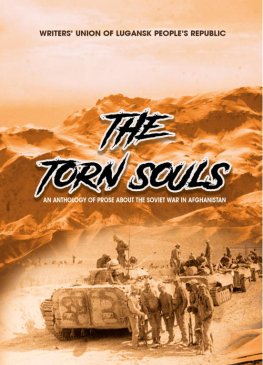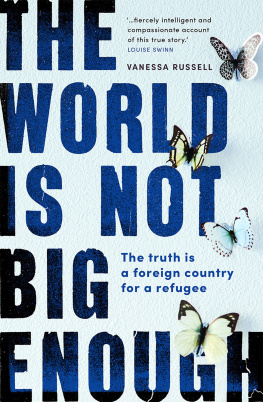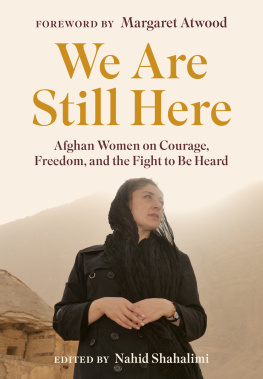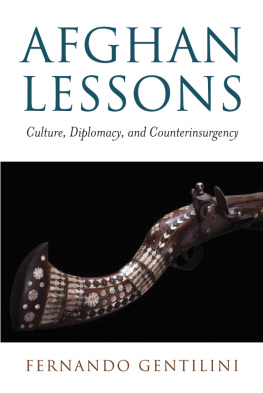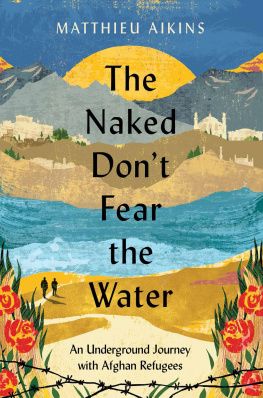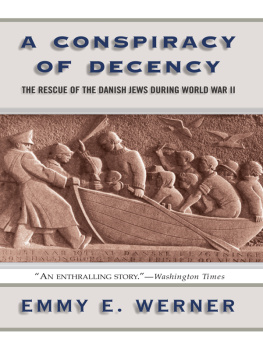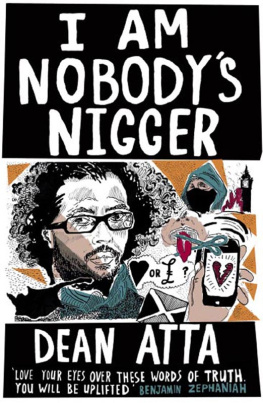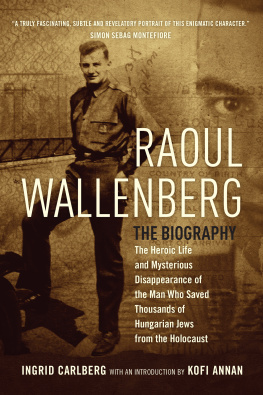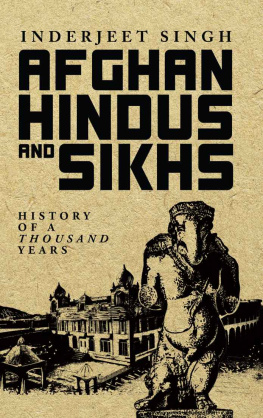All content is copyright 2012 by Atta Arghandiwal.
All rights reserved. No part of this publication may be reproduced, stored in or introduced into a retrieval system, or transmitted, in any form, or by any means (electronic, mechanical, photocopying, recording or otherwise) without the prior written permission of the publisher. This book is sold subject to the condition that it shall not, by way of trade or otherwise, be lent, resold, hired out, or otherwise circulated without the publishers prior consent in any form of binding or cover other than that in which it is published and without a similar condition including this condition being imposed on the subsequent purchaser.
All rights reserved worldwide
Cover and interior design by Lydia Dmoch
Front cover photos: (top) by Qudsia Arghandiwal;
(bottom) by Yusuf Rafiqzada
Back cover photo: Pro Image Studios
Russian Chocolate
R EMEMBER, YOU ARE GOING to Russia tomorrow, so go to sleep, shouted my mother as she prepared my clothing for a big trip to Russia. Although it was true that we were not going to the heart of the iconic Russia, or very deep at all within the borders, sleep was the last thing on my mind. In the morning, we would be crossing into Russian territory at the natural border through Amu Darya (the Oxus River), which makes up about eight hundred miles of the AfghanRussian border. I was excited about the adventure but also apprehensive about its possible dangers. As one of eight children at that time, I wasnt quite as sure as my father that I was the lucky child whose turn it was to accompany him on his trip, but I knew it was meant to be an honor.
I had earned my day trip over the border, and it was quite an accomplishment in my family to be selected. My father had been assigned to a four-year mission to establish and foster improved military relations with his Russian counterparts as Afghanistans central government commissioner in Imam Sahib, a border town located in the northeastern part of the country, in Kunduz Province. My father had a difficult choice to make every time he journeyed into Russian territory, and it was always predicated on his childrens being acceptable companions and able to avoid any embarrassment. I must have behaved awfully well, because I could tell that he was particularly excited to share the trip with me.
I was always curious why my mother did not accompany my father on his frequent trips, but one of my brothers broke the ice by inquiring, But, Mother, you never get to go to Russia. How come?
Well, she said, women are not supposed to travel and be amongst strangers in strange areas. Besides, I cant go to Russia with a veil on my head. She laughed as she thought of it. It would be quite a scene for me to follow your father covered from head to toe, she continued.
Surrounding my mother now, we asked more. But, Mother, why do you have to wear a veil still? my older sister insisted. What about this new freedom for women?
Well, the new rule is very exciting for the Afghan women, but I think it is still too early, my mother said with a smile. I will hopefully go to some places without a veil, but Russia is not one of them. Maybe someday.
Breaking through the gang surrounding my mother, my father shared news that dramatic changes were on their way as a result of the newly elected prime minister, Mohammad Daud. My father was especially optimistic on that particular day, as there had been a spectacular shedding of the veil, along with other promised social and economic changes that echoed a new, modern age for Afghanistan. It was 1959, and we were all excited about the future.
My father was the governments highest-ranking military official in Imam Sahib, working alongside a high-ranking civilian official responsible for the overall control of the city, with extended authority to the outlying areas. My father was responsible for the overall security of the area, which included at least six border posts alongside the Amu River, as well as a large military contingency stationed in the heart of the city. Aside from his military tasks, he was also responsible for communication and negotiations with Soviet military officials on their side of the militarized border, on behalf of the Afghan government.
My father was not only a very powerful government official but also very well respected and liked by both local and Soviet officials. I remember his calm demeanor and professionalism as we traveled to the Soviet Union; I felt very proud to be his son. He had a sense of discipline and a professional air about him that were obvious to his men and to me, even as a child. To be a part of his preparation and talk surrounding his trip was awe-inspiring, and I knew I wanted to be just like him.
The long night passed, and my internal clock woke me in the dark of the early morning, when we had to leave in order to board the ship for a short trip across the Oxus River to the shores of Russia. Afghanistans border with Russia is separated and marked mainly by the mighty Oxus River, navigable for over eight hundred miles.
Respecting the serious nature of the trip, we drove by car silently through bumpy unpaved roads during the early hours of the morning, through heavily wooded areas leading to the border area in preparation for our journey across the river. Awaiting our departure was a Russian military ship, and I sat glued to my seat, unable to communicate and in awe of the power I was witnessing firsthand. The medium-size river vessel left the dock with us on board and cut through the Oxus River as if nothing could stop it. The mighty river would overflow and cause massive destruction during the rainy season. The boat seemed stronger than the river itself, and it gave me a chill that I would remember always. Even in the presence of my father, I had never felt so small.
The intensity of the two-hour drive and boat trip to the Soviet outpost was palpable, and it is obvious now that my fathers preparation for those trips was to steel himself in the face of a storm that he could not predict but was charged to defend against if necessary. As a child I had no real grasp of the powers at play. My schoolmates and I were constantly taught and lectured about Russian communism as if our identity had already been predetermined. It was not only the words Russia and communism that clawed at me. But, like the feeling I had crossing the river, those two words somehow instilled in me conflicting emotions of fear and curiosity.
It always seemed odd to me that as a Muslim nation we studied the nature of Russian government and communist ideology, which clearly was contradictory to our beliefs. We considered the Russians to be kafirs (non-Muslims/infidels), yet we were embracing their government not as if it were a lesson in political science, but as a sort of awkward cultural exchange. Little did we know, the map was already being redrawn, right under our feet.


